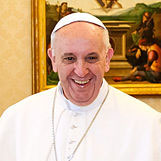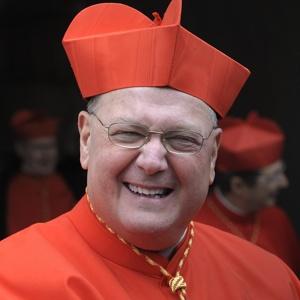Early in Benedict’s pontificate, at least one commentator described him as “Pope of the Internet age.” This was in contrast to John Paul II, who was “Pope of the television age.”
The rationale was intuitive. JPII was charismatic, telegenic, and had an aptitude for dramatic gesture. Ideal for TV. BXVI, in contrast, had none of his predecessor’s visual flair, but he is a talented writer. Ideal for the written word which in 2005 dominated the Internet.
Of course, the Internet has changed a lot in the 8 years since. So much so, that Pope Francis, who has an entirely different style again, could also be characterised as “Pope of the Internet age,” or maybe more specifically, “Pope of the Twitterverse.”
Sandro Magister shows why:
[The oratory typical of Pope Francis] is a concise, simple, conversational oratory, tethered to words or images of immediate communicative impact.
For example:
– the image of “God spray,” used by Pope Francis on April 18 to warn against the idea of an impersonal God “that is a bit everywhere but one does not know what it may be”;
– or the image of “babysitter Church,” used on April 17 to stigmatize a Church that only “takes care of children to put them to sleep,” instead of acting as a mother with her children;
– or the formula “satellite Christians,” used on April 22 to brand those Christians who allow their conduct to be dictated by “common sense” and by “worldly prudence,” instead of by Jesus.
Stefania Falasca, an old friend of Bergoglio – who telephoned her on the evening of his election – asked him after one morning Mass at the Domus Sanctae Marthae: “Father, but how do these expressions come to you?”
“A simple smile was his reply.” In Falasca’s judgment, the use of such expressions on the part of the pope “in literary terms is called ‘pastiche,’ which is precisely the juxtaposition of words of different levels or different registers with expressive effect. The ‘pastiche’ style is today a typical feature of communication on the web and of postmodern language. This is therefore a matter of linguistic associations unprecedented in the history of the Petrine magisterium.”
Later in the article, Magister considers the media’s silence on Pope Francis’ more provocative statements. He describes it as a gentle honeymoon. I’m inclined to view it more ominously. A pope who is censured by the world is at least more easily heard than a pope who is censored.





Recent Comments